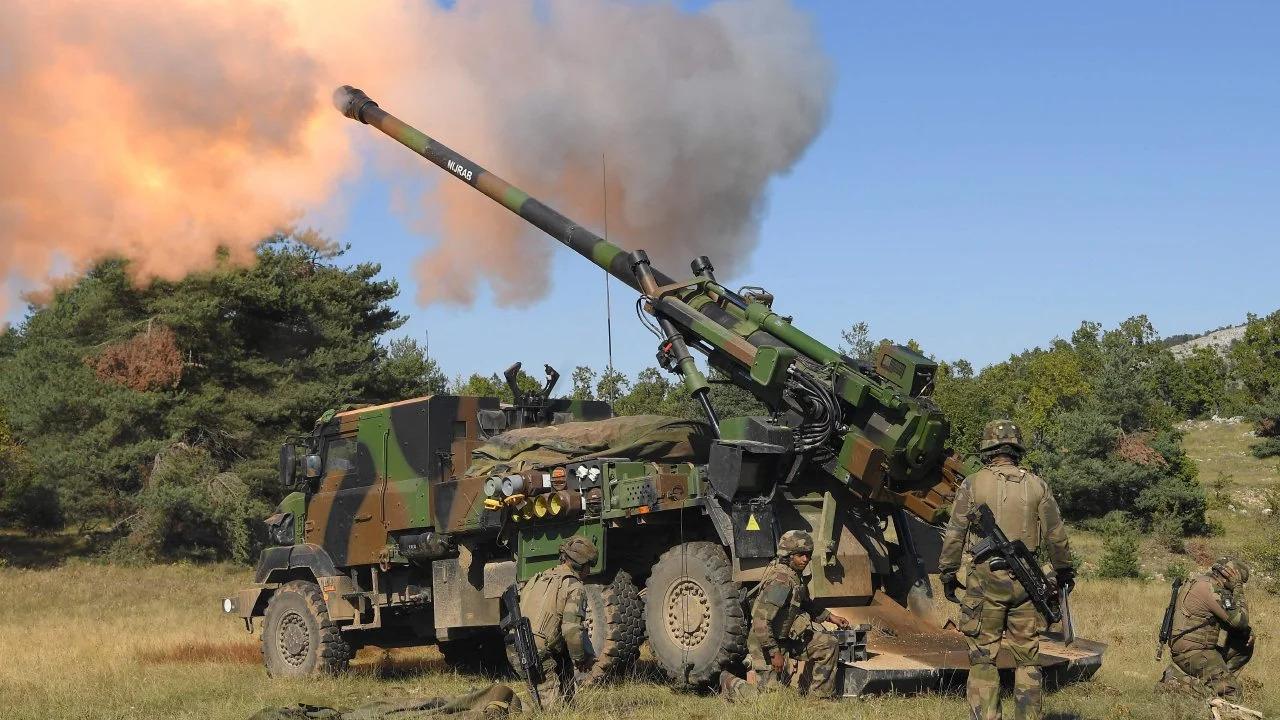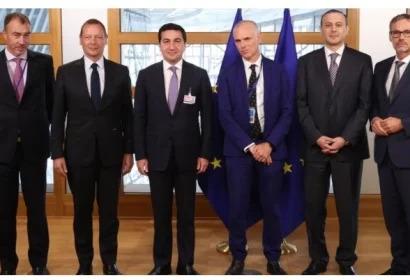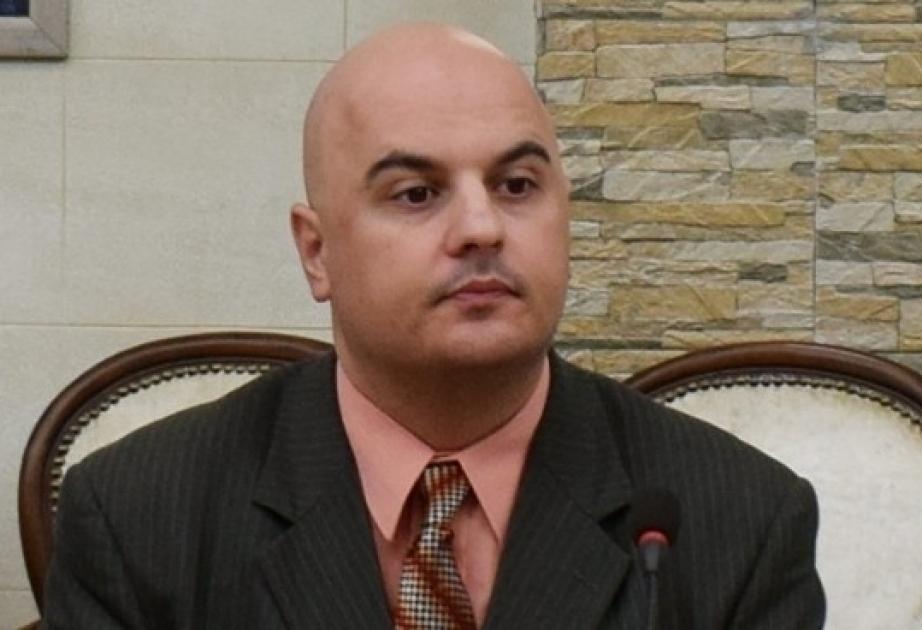Armenian security supremo points fingers at Russia as French arms deal stirs controversy Blame & betrayal
The ongoing conflict between Armenia and Azerbaijan has been punctuated by a significant statement from Armen Grigoryan, Secretary of the Armenian Security Council. In June 2023, Grigoryan addressed Armenia's historical and current security dependencies on Russia, suggesting that such reliance led to the loss of “Nagorno-Karabakh to Azerbaijan”. This statement followed France’s decision to sell Caesar self-propelled howitzers to Armenia, a move announced by French Defense Minister Sebastien Lecornu.
According to La Figaro, the contract involves 36 howitzers, enough to equip two artillery battalions. This deal has sparked concerns among independent experts who argue that Paris’s actions might embolden Armenia, potentially undermining Azerbaijan’s efforts to establish stable borders and sign a long-awaited peace accord.

Armenian security supremo’s statement
Armen Grigoryan claimed that Russia's intervention was pivotal in the recent conflict.
"When Armenia was fully dependent on Russia, didn't we have a war? We did. Let's fix that because of this existing situation, we found ourselves in war," he stated at a briefing reported by Armenpress. Grigoryan asserted that without Russian involvement, Armenia would not have faced war over Nagorno-Karabakh, implying that “Russia effectively handed over the region to Azerbaijan”.
"Russia came, took away Nagorno-Karabakh from us, returned it to Azerbaijan, then left, that's the whole reality," he concluded, emphasizing Armenia’s attempt to bring stability through strategic changes and distancing from complete dependence on Russia.

International reactions: Criticism of France & Armenia
The international response to the French arms deal was marked by sharp criticism.
Peter Marko Tase, a US-based expert on European diplomatic history, condemned France and Armenia for violating the Arms Trade Treaty (ATT), which aims to promote peace and security in regions like the Southern Caucasus. Tase argued that the sale of advanced weaponry to Armenia disrupts efforts for a bilateral peace treaty between Yerevan and Baku and could lead to further conflict.
"The current arms trade partnership between France and Armenia is violating the ATT, and the sale of 36 Caesar self-propelled howitzers to Armenia is clearly disrupting peace and security in the region," Tase said in an exclusive comment for Caliber.Az news website.
Response by Azerbaijani top presidential aide
In response to Armen Grigoryan’s accusations, Hikmat Hajiyev, Assistant to the President of Azerbaijan and Head of the Foreign Policy Affairs Department, threatened Armenia's political and military leadership. Hajiyev dismissed Grigoryan's claims as attempts to deflect from Armenia’s defeat and historical failures. He emphasized that Azerbaijan’s military success in the 44-day Patriotic War resulted in Armenia's capitulation and the liberation of Nagorno-Karabakh from Armenian occupation.
"The Azerbaijani Army, through sacrifice and valor on the battlefield, defeated the Armenian army in the 44-day Patriotic War and achieved an absolute military victory," Hajiyev stated. He urged Armenia to abandon revanchist fantasies and cease its militarization policy to avoid repeating historical mistakes.
Russian reactions & internal criticism
Konstantin Zatulin, a Russian MP known for his anti-Azerbaijani stance, accused the Armenian leadership of falsifying history. Zatulin argued that Armenia's claims about Russia’s role in the Nagorno-Karabakh conflict were misleading and that Armenian authorities were attempting to shift blame for their failures onto Russia. "There is no doubt that this team brought their compatriots in Karabakh to surrender, failed military, diplomatic struggle for Karabakh," Zatulin said in a conversation with Lenta.ru. He contended that Russia had maintained a balanced position, advocating a peaceful settlement for decades.
Peter Tase's analysis
Peter Marko Tase further elaborated on the geopolitical implications of France's arms deal with Armenia. He criticized President Emmanuel Macron for supporting pro-Armenian interest groups and warned that the arms trade could provoke a new armed conflict between Armenia and Azerbaijan. Tase's analysis was particularly scathing of France's perceived disregard for the region's fragile peace dynamics.

"President Macron has a propensity to support pro-Armenian interest groups operating in Paris, disregarding the reality of a potential armed conflict," Tase noted.
He argued that France's actions undermine the European Union's efforts to manage the security challenges in Ukraine and the Caucasus.
"The global nature of the security challenge in Ukraine is draining large amounts of military and economic resources in the European Union geography; nonetheless, Paris is eager to open new trenches of bloody war and is encouraging a third brutal armed conflict between Azerbaijan and Armenia," Tase emphasized.
He called for the European Union and the White House to intervene and stop Macron from further exporting advanced military technology to Yerevan.
Internal political dynamics in Armenia
The internal political dynamics in Armenia also played a significant role in shaping the narrative. Prime Minister Nikol Pashinyan and his administration faced criticism for their handling of the Nagorno-Karabakh conflict. In late December 2023, Pashinyan accused Russia of failing to implement the Nagorno-Karabakh agreements. Russian Foreign Ministry Spokesperson Maria Zakharova responded by stressing that Yerevan’s statements were attempts to fudge the facts and absolve itself of responsibility. This exchange highlighted the deep-seated tensions and the blame game between Armenia and Russia.
Conclusion
The statements and actions in mid-2024 highlight a complex web of accusations, military maneuvers, and international diplomacy. Armen Grigoryan’s assertions about Russian responsibility for the Nagorno-Karabakh conflict were met with strong denials and counterclaims from Azerbaijani and Russian officials. The French arms deal further complicated the situation, drawing criticism for potentially destabilizing the region. As tensions continue, the prospects for lasting peace between Armenia and Azerbaijan remain uncertain, with international influences playing a crucial role in shaping the future of this long-standing conflict.
The evolving geopolitical landscape underscores the need for balanced diplomacy and adherence to international norms to prevent further escalation. The international community's response, particularly from major powers like France and Russia, will be critical in determining the trajectory of the Armenia-Azerbaijan conflict and the broader stability of the Caucasus region.








